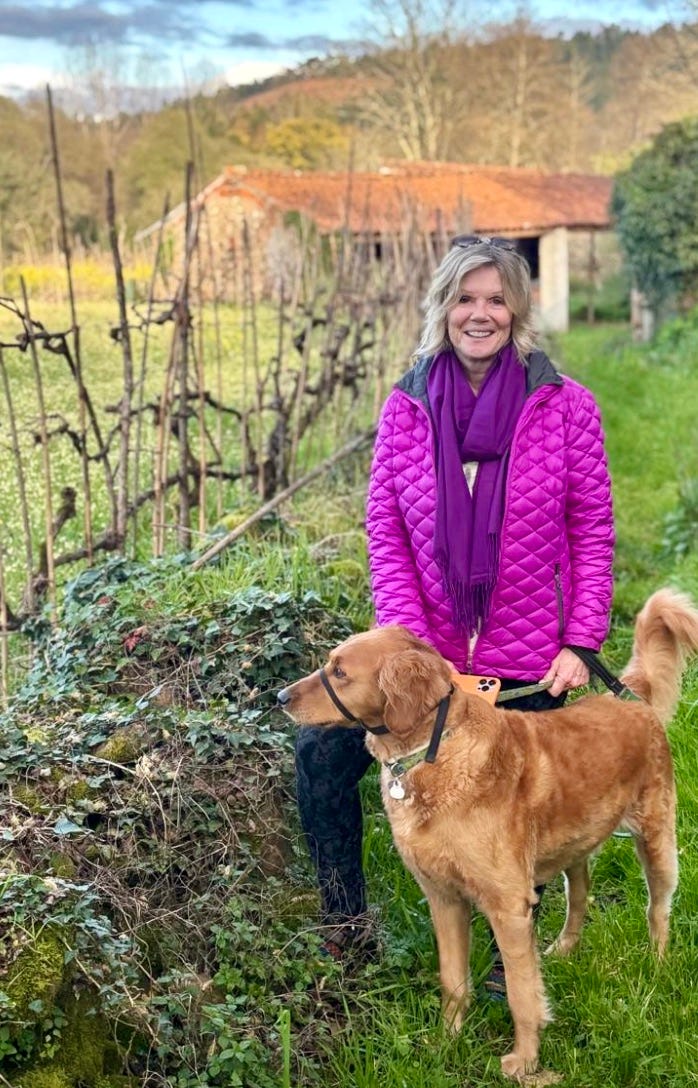Avoiding the "Deadly Game" in Portugal
Advice on assimilating from author, Marlena de Blasi
“How did you come to be an expert on Italy and speak so fluently?” someone once asked American author Marlena de Blasi during an interview.
I have lived in Portugal for two years and I am still not fluent. Although I speak enough Danish, French, Italian and German to be comfortable traveling in each of those countries, I’m not even conversational yet in Portuguese. Why am I having so much difficulty picking up Portuguese?
Naturally, I was interested in what Marlena, a native of St. Louis, had to say.
As a food and wine writer for major American newspapers and magazines, Marlena had studied the regional gastronomic cuisines and wines of Italy for nearly 18 years. Despite this exposure, she said could speak no more than what she calls “the language of the table.”
And that was absolutely fine with her. She was more interested in French and never had the slightest desire to speak Italian. At least, not until she met Fernando, the Italian man she would marry.
(She tells the story of how they met in her lovely memoir, A Thousand Days in Venice.)
Just three days into her relationship with Fernando, however, it became quite clear to her that he would not be a patient teacher of Italian.
“His concession was to speak louder and slower!” she says.
And so, Marlena decided to jump right into daily Venetian life all by herself. She went to the markets by each morning to buy fresh produce and other groceries – but, most of all, to listen.
“Everyone learns a language differently and I knew that for me, to hear it was what I needed.”
“It was not only in the markets that I learned, but on the boats, in the alleyways, on the bridges, in the shops, on the streets. I simply joined the crowds as though I belonged and soon – or, perhaps not very soon – I did,” says Marlene.
“After a while, I became ‘one of the boys.’ And so there was never this great challenge in learning the language, never a formal, studious attempt to be perfect. I think that’s one of the reasons why I have no American accent when I speak in Italian.
“What I never did – nor could consider doing – was comfort myself with other Americans. To set myself up in a colony of sorts or in a ghetto of expats. A deadly game. All one accomplishes is isolation from the locals and the constant putting off of speaking the new language,” she says.
Frightening as this sounds, I find her advice inspirational. I am tentatively trying out my new Portuguese vocabulary with my neighbors, the friendly CTT guy who brings packages to my house and needs a code, while walking my dog, and with the shopkeepers in local towns.
Their response is always to encourage me. Once in awhile, they gently correct me, and that’s nothing but helpful.
Even more surprising, after I labor over what I am trying to say in Portuguese, sometimes they smile and try out a few hesitant words in English – even if it’s only to say thank you.
And so begins the dance of sharing and learning languages – and finding a new community. ☺️
Original art by Kristin Fellows
Kristin Fellows is a published artisan writer, a world traveler, and a well-seasoned documentary film consultant. This tale comes to you from a small farming village in Portugal, where she is still surprised to find herself living.
When not writing, Kristin can often be found walking Kiitos, listening to someone’s story, or behind the lens of one of her cameras. Or perhaps doing all three at the same time.
More about Kristin @ kristinfellowswriter.com
[photo of Kristin & Kiitos by Liza Debevec]




I learned a fair amount of my Spanish by using Google Translate to learn a new phrase to use when I was going to be out and about, or something I needed to say to someone in a shop. I would say it over and over out loud to myself, under my breath walking down the street, then put myself out there when the opportunity came around. I have been surprised at how many of those phrases have “stuck”, and that I can remember them with little effort. If I get to Portugal, I’ll do it all again. My favorite phrase I would say before I say anything else, would be: “Lamento, mas o meu português é muito limitado.” I’m sorry, but my Portuguese is very limited. Then do my best with whatever I need to say.
I definitely agree with the “deadly game” idea. You put yourself at a real disadvantage by restricting yourself to an expat community. Gotta mix it up as much as you can.
I find that if I spend even twenty minutes studying, I am braver (a little) about speaking Portuguese. I am a visual learner, so I try to listen while reading the words. Out in the wild.... thank goodness the Portuguese are kind and patient.